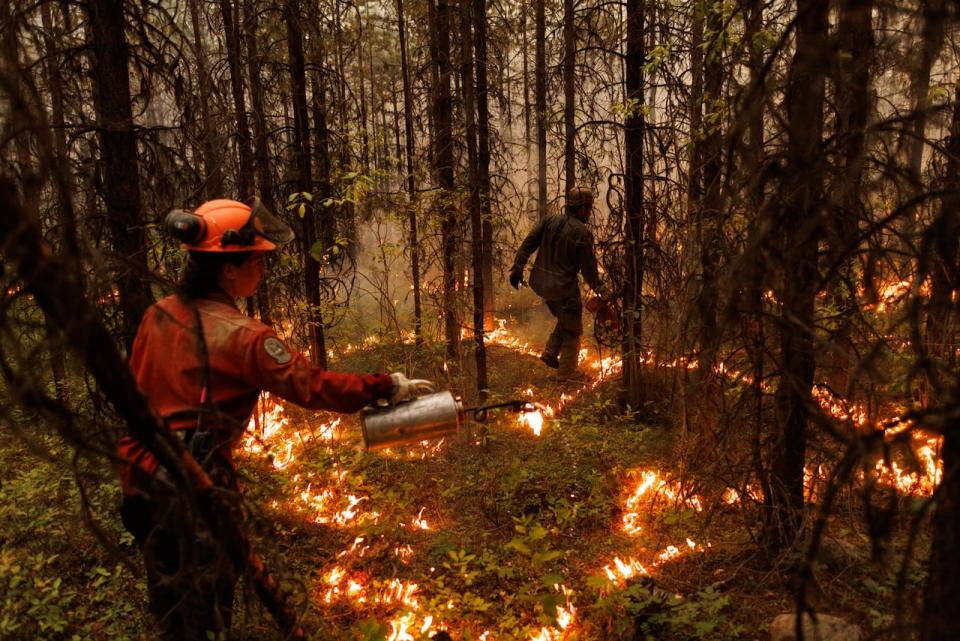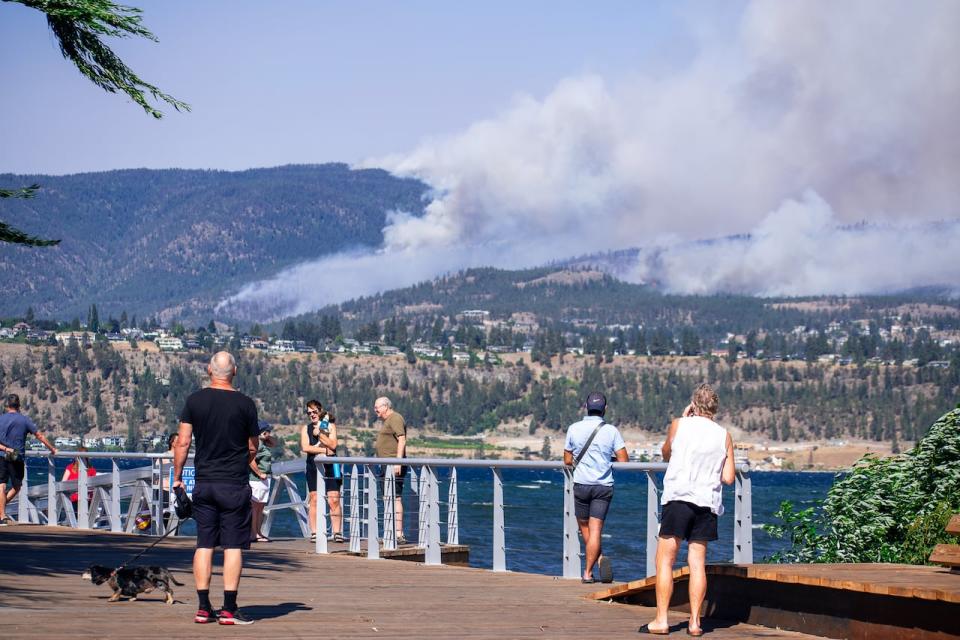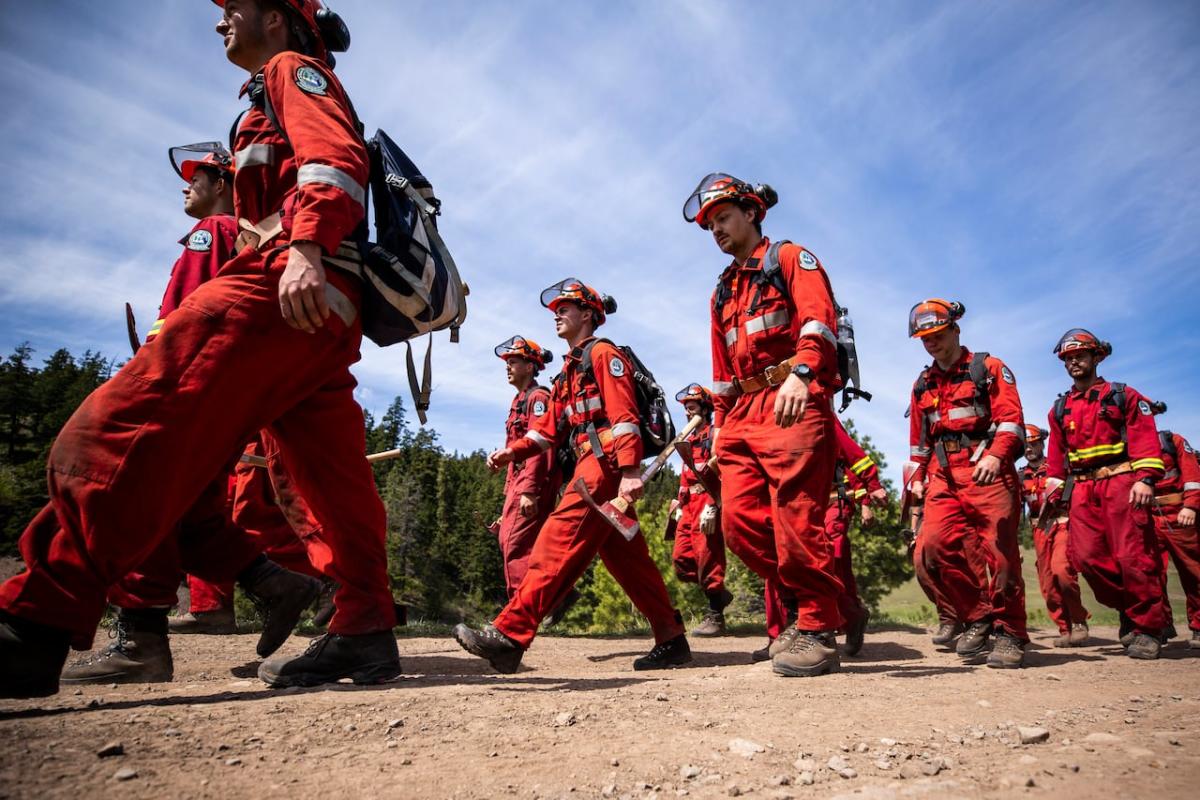The B.C. government says it will introduce earlier pensions for wildland firefighters in the province, a move that’s being praised by the firefighters’ union.
It comes as devastating wildfire seasons have become the norm in the province, with B.C. spending over $2 billion fighting fires in 2023, the most destructive year on record in terms of area burned.
That has, in turn, sparked concerns about firefighters’ mental and physical health, with previous calls for more action to retain experienced crew members.
Now, the province and the B.C. General Employees’ Union (BCGEU) say they have reached an agreement-in-principle to to offer B.C. Wildfire Service firefighters pensions earlier.
The government says the proposals mean wildland firefighters will have retirement benefits similar to other public safety workers like paramedics and correctional officers.
BCGEU president Paul Finch said the agreement would help in addressing broader recruitment and retainment issues in the B.C. Wildfire Service.
“What we’re doing here is we’re correcting a historic inequity between wildfire fighters, and other firefighters and other emergency responders,” he told CBC News.
“We’re very pleased that the province has come forward to fund this initiative.”

A firefighter with the B.C. Wildfire Service, left, works with a colleague from an Alaska smokejumper unit to set a planned ignition near a highway in northern B.C. in July 2023. (Jesse Winter)
According to the province, the proposed changes mean wildfire fighters could qualify for pensions up to five years earlier than other members of the Public Service Pension Plan.
Finch says currently wildfire fighters are able to retire at the age of 55 at the earliest.
The proposed agreement, according to Finch, would have the early retirement date set at age 50, with the earliest age for an unreduced pension being 55 years.
“It also means that we’re not, you know, putting firefighters into situations where they have to continue their operational career longer into life,” he said.
Calls for compensation, schedule changes
The union president says the BCGEU represents around 1,800 workers in the wildfire service, with around 1,300 of them being frontline wildfire fighters.
The move to enhance wildfire fighters’ pensions comes as the province pushes to add more permanent staff to its firefighting roster, as opposed to seasonal hires during the summer.
Finch says the pension eligibility was one key piece to fixing retainment issues in the wildfire service.


People in Pandosy Waterfront Park in Kelowna watch the McDougall Creek wildfire burning in West Kelowna amid strong winds on Aug. 18, 2023. The BCGEU president says that, as wildfire seasons go longer, the province needs to change the compensation and scheduling models for wildland firefighters. (Winston Szeto/CBC)
He also wants the province to increase compensation for firefighters to prevent them from switching to the private sector — as well as change how they’re scheduled.
“This is the new normal for seasons, these long fire seasons,” he said. “And where there’s extended operations, we need to staff appropriately for that.
“I think that means moving to something like a shift model, where we assume there’s going to be a certain amount of overtime in these long shifts.”
In a statement, the province says it has increased permanent full-time staff at the B.C. Wildfire Service by 55 per cent since 2022.
The changes to the pension plans could go into effect on April 1, 2026. Finch says the pension board, employer and union still have to hammer out eligibility details over the next year and ratify the agreement.
“We need our firefighters more than ever. This represents our long-term recognition of the enduring importance of their work,” said Forests Minister Bruce Ralston in a statement.

